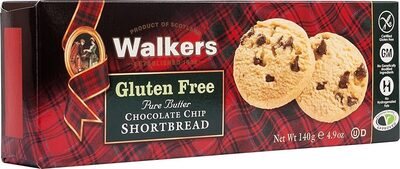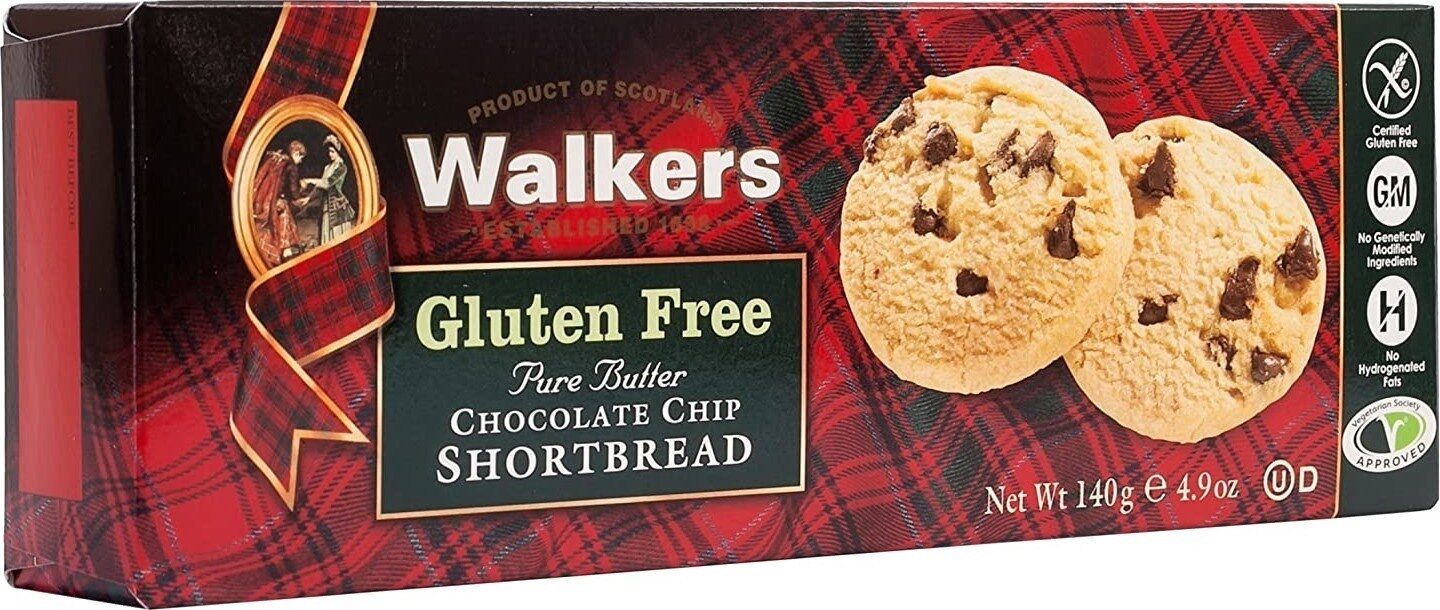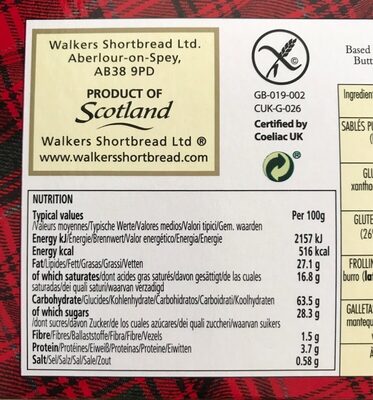Shortbread glutenfree chocolate chip shortbread - Walkers - 140 g
This product page is not complete. You can help to complete it by editing it and adding more data from the photos we have, or by taking more photos using the app for Android or iPhone/iPad. Thank you!
×
Some of the data for this product has been provided directly by the manufacturer KAMBLY FRANCE.
Barcode: 0039047010215 (EAN / EAN-13) 039047010215 (UPC / UPC-A)
Common name: Sables pur beurre aux pepites de chocolat sans gluten.
Quantity: 140 g
Packaging: Plastic, Cardboard, Film
Brands: Walkers
Brand owner: WALKERS
Categories: Snacks, Sweet snacks, Specific products, Biscuits and cakes, Products for specific diets, Biscuits, Products without gluten, Chocolate biscuits, Shortbread cookies, Gluten-free biscuits, Shortbread, fr:Biscuits écossais, fr:Goûter
Labels, certifications, awards:
No gluten, Kosher, No artificial flavors, No preservatives, Green Dot, No colorings, No palm oil, Orthodox Union Kosher, Pure butter

Origin of the product and/or its ingredients: Écosse
Manufacturing or processing places: Écosse
Stores: Carrefour, Cora, Match, U enseignes, Leclerc, Diapar, Colryut, segurel
Countries where sold: Belgium, Switzerland, United Kingdom, United States
Matching with your preferences
Environment
Carbon footprint
Packaging
Transportation
Other information
Conservation conditions: A conserver à 16 °C
Period of time after opening: fr:365
Customer service: KAMBLY FRANCE, 5, Rue Cadet 75009 PARIS
Report a problem
Data sources
The manufacturer KAMBLY FRANCE uses Equadis to automatically transmit data and photos for its products.
Product added on by openfoodfacts-contributors
Last edit of product page on by org-kambly-france.
Product page also edited by ampoib, beniben, foodrepo, kiliweb, musarana, openfood-ch-import, org-database-usda, packbot, tacite, tacite-mass-editor, teolemon, usda-ndb-import, wolfgang8741, yuka.WVlCZkdwcFlyZFlid2NZWjN5MzcyZGRUeGJteEFVMndkdWNvSVE9PQ, yuka.YXEwcE92OHZtdHd0aThNcytTanVwb2hzeVlmNGNXenFjdm94SUE9PQ, yuka.ZTZJQ0UvdzZyNkF5cHN3QitrbisrZFJOeHNINFgyMlNOT29BSVE9PQ, yuka.sY2b0xO6T85zoF3NwEKvlmNlCvTgnQPdDRrRmh2IwdSHCqGzfvgq89PoGao, yukafix.
Last check of product page on by beniben.










